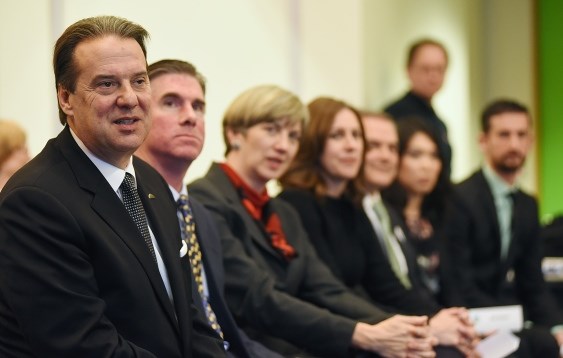It’s still too soon to sign off on an operating agreement with the Vancouver Park Board, say 14 of the volunteer-led non-profit associations that run community centres in the city.
The joint operating agreement, known as the JOA, is close to meeting a standard that pleases a majority of Vancouver’s 22 community centres. However, it’s not the time to force the issue now that only a number of minor but outstanding differences remain and an agreement is within reach, says Kate Perkins, Trout Lake Community Centre Association's president.
“It’s not a rejection of the deal or a rejection of the JOA,” she said. “It’s just that more work needs to be done on it.”
Elected commissioners will debate the JOA on Feb. 16 and can either approve it or send it back to staff for further work. The current consultation started last spring, but the history of JOA discussions goes back much farther and not without animosity.
A meeting scheduled for Feb. 8 was postponed until Feb. 9 because of a forecasted snowfall, but Perkins said public consultation should not take place before the park board has made further changes to the JOA, a recommendation she said is based on legal counsel given to the community centre associations, or CCAs.
“There is some language around the fund and how that gets structured,” she said. “It’s not opposition to the fund, and I think that is a misconception that we are all against it and actually we are not.”
The Community Centre Investment Fund is a framework to redistribute money between centres that generate more revenue and those that don’t — or can’t — generate as much.
The sticking point is not the fund itself, but the structure of how it’s funded. Perkins said the concern is over “mechanics” as opposed to actual positions since a majority of CCAs support the concept of redistributing wealth amongst them. Strathcona, for example, is in a unique situation and without additional funding, the association will not sign the JOA.
The park board has proposed profitable CCAs contribute a two per cent levy out of the revenue created at those facilities. The 14 CCAs, including Trout Lake, accept contributing two per cent but want to protect the reserves some associations have saved over years of fundraising for long-term projects.
The CCAs also want to stipulate the fund not be used for capital projects or to boost the park board’s overall budget and that any association experiencing hardship be able to apply for money in order to deliver programs for patrons.
“It’s a way of increasing accessibility or equity. Are there centres that could benefit from additional resources — I think we all recognize that there are,” said Perkins.
If the levy is considered a tax by Canadian Revenue Agency, it poses further complications for an association’s non-profit status, she said.
“The way it is set up, there are some legal red flags. It’s not a matter of us saying we’re against giving money. We’ve never said that. We would like to kick it back to [park board staff] to make sure the language is viable for both of us,” she said.
The park board has said work on the JOA is not considered a negotiation but a consultation. Perkins said there has never been such consensus among a majority of community centre associations regarding the document that will govern their operations for the next 15 years.
In 2013, six community centre associations — Hastings, Sunset, Hillcrest, Kensington, Kerrisdale and Killarney — sued the park board over what they saw as a loss of their independence and breach of contract when the OneCard was implemented. That suit is currently on hold and three of those associations — Hastings, Kerrisdale and Killarney — are part of the 14 now nearing consensus on the JOA. In addition to Trout Lake, the others are Champlain, False Creek, Kitsilano, Mt. Pleasant, Renfrew, Roundhouse, Thunderbird, Strathcona, West End, and West Point Grey.
The group of 14 issued a joint press release Feb. 7 calling for the park board to postpone its special public meeting scheduled this week in order to iron out several final sticking points.
“Originally, they wanted to vote on this in November. We pushed to get this delayed further,” said Perkins, who first volunteered for the association’s board of directors 15 years ago when her son entered pre-school at the centre. She has been president of the association for six years and was also married at Trout Lake. In her professional life, she works in human resources.
“Our asking for more time is not a delay tactic,” said Perkins. “We were hoping to get more time to be able to get closer. There is a deal there. It’s the closest we’ve ever been to having a deal. I am baffled why they would go to a public meeting to approve something before they know they have consensus with their partner. It doesn’t make sense to me.”
The public meeting is scheduled for 6 p.m. Thursday, Feb. 9, at the Wosk Centre (580 West Hastings St.).



